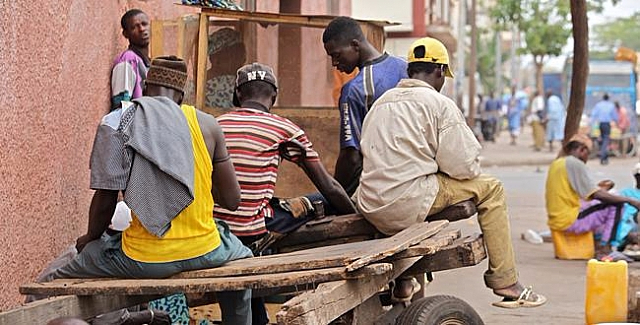Our work on inequality recognizes among others:
- The co-existence of mining enclaves producing vast wealth within a hinterland of impoverished local communities whose dispossession and loss of livelihood is a condition for the creation of the mine;
- The exploitation of publicly owned mineral under agreements unbalanced in favour of foreign companies with resultant loss of development revenue;
- The exclusion of citizens from information about and decision making on policies affecting their lives;
- Trade and investment agreements that destroy jobs and create disproportion wealth for a few and enable large firms avoid taxes;
- Discrimination against women in accessing economic resources and
- Unemployment facing hundreds of millions of young Africans.
We appreciate that to redress the imbalance of power and influence on policy and decision makers to effect the needed changes constitutes the strategic challenge for social change. Key to meeting this challenge is the self-organisation of the marginalized social and economic groups, through collective efforts, with the support and solidarity of others, in line with the principles of equality and equity. To achieve this, TWN-Africa’s strategy involves: (a) working, through networks and other forms of collaboration, with (like-minded) organisations and individuals of civil society; to (b) facilitate the self-organisation and articulation of the needs and interests of marginalised socio-economic groups; and make and/or back demands for equitable policies of (c) policy-making institutions and decisions-makers.
And the effect of what our collective working has brought can be seen in a united, more organised and effective presence of African CSOs in ‘international economic governance arena like WTO, EPA and forging pan-African networks like the Alternative Mining Indaba and linking community (ASM, NCOM) and constituency (women/gender) concerns, GERA/Netright. We also facilitate the organization and expression of African civil society at the supranational (regional, continental and global) levels on these issues.
TWN-Africa’s work takes account of the lessons from and the implications of the global financial and economic crisis for Africa, especially the imperative of diversification and structural transformation and moving away from commodity dependence. With the aim of working ‘towards equitable transformation in and for Africa’, the organisation’s current focus is on the following thematic areas:
- Minerals and development
- Continental and global trade and investment regimes
- Global finance and domestic resource mobilisation
- Gender equality and equity in structural economic transformation
- Agrarian transformation and industrialisation
TWN-Africa’s strategy for meeting this political challenge has involved: (a) working, through networks and other forms of collaboration, with (like-minded) organisations and individuals of civil society; to (b) facilitate the self-organisation and articulation of the needs and interests of marginalised socio-economic groups; and make and/or back demands for equitable policies of (c) policy-making institutions and decisions-makers.
To this end, TWN-Africa’s advocacy has deployed six instruments. Two of these (a) constituency-building and public mobilisation and (b) engagement with policy- and decision-makers are front-line instruments, which shape the use of the rest, namely: (c) research and knowledge-generation; (d) communication and information dissemination; (e) capacity building; and (f) networking.
